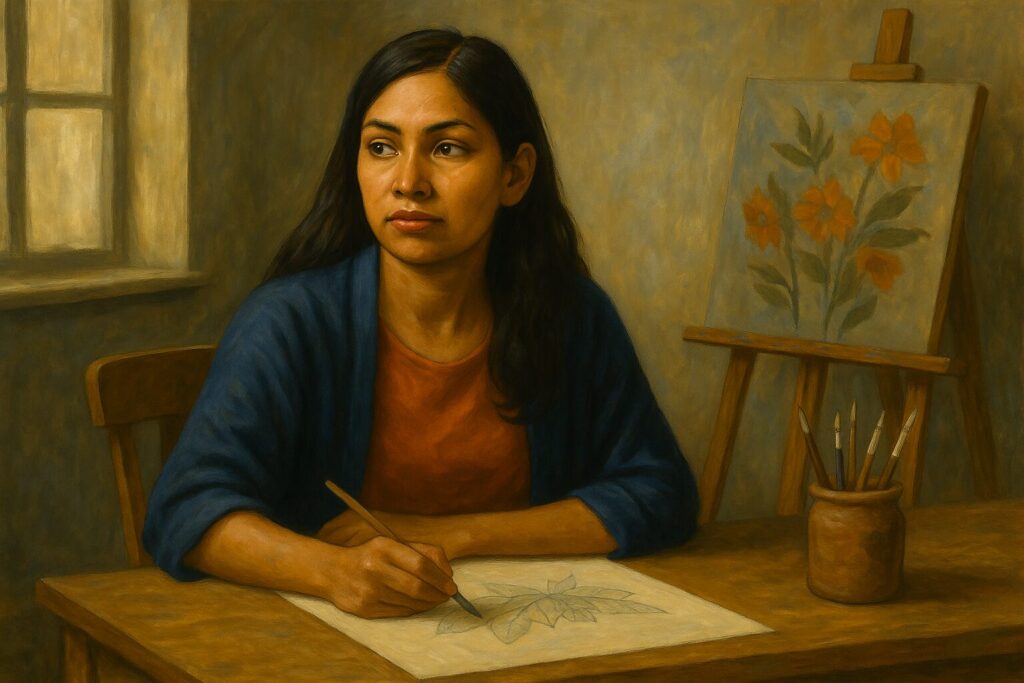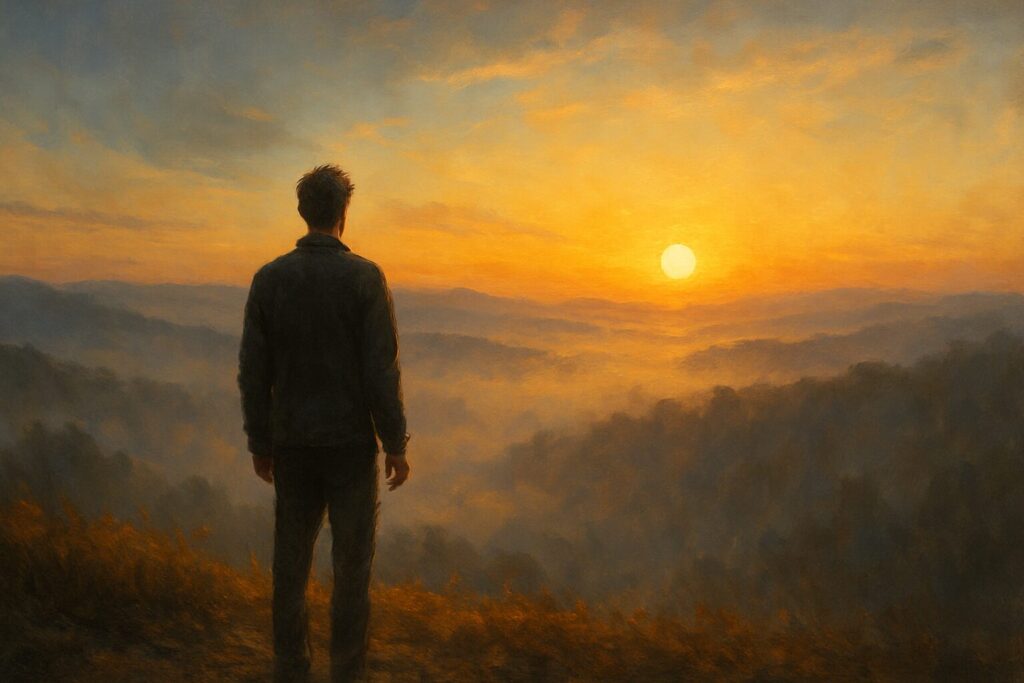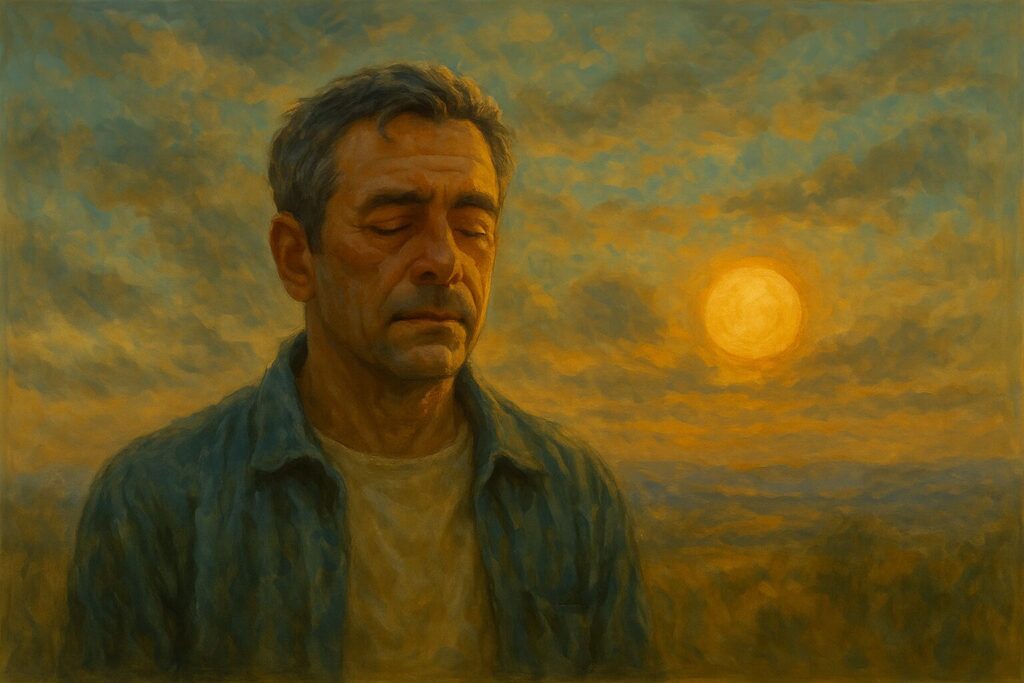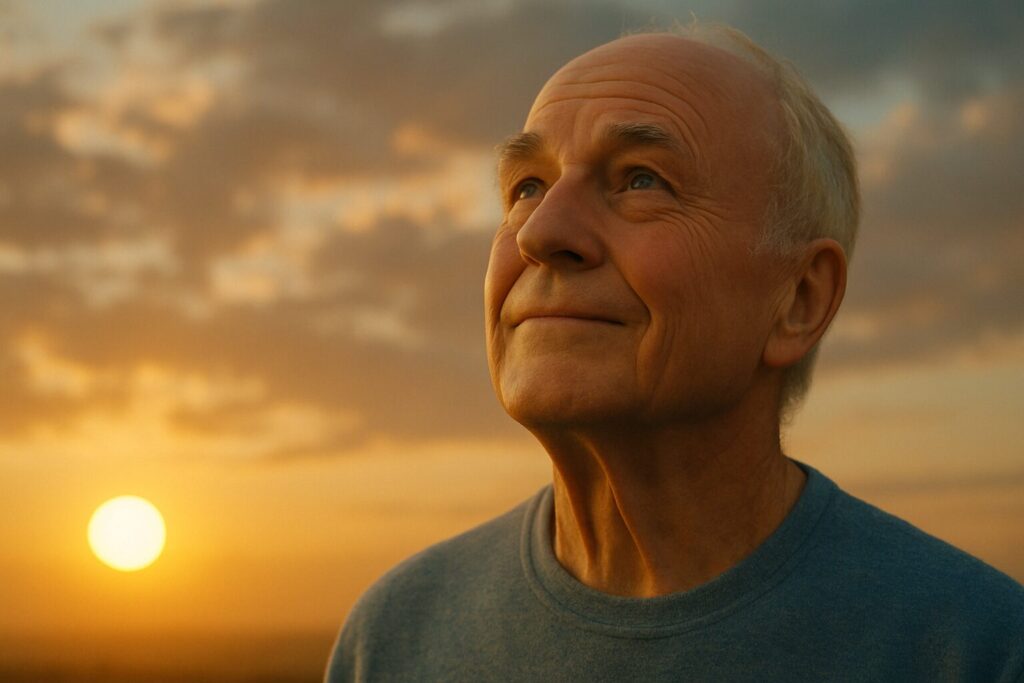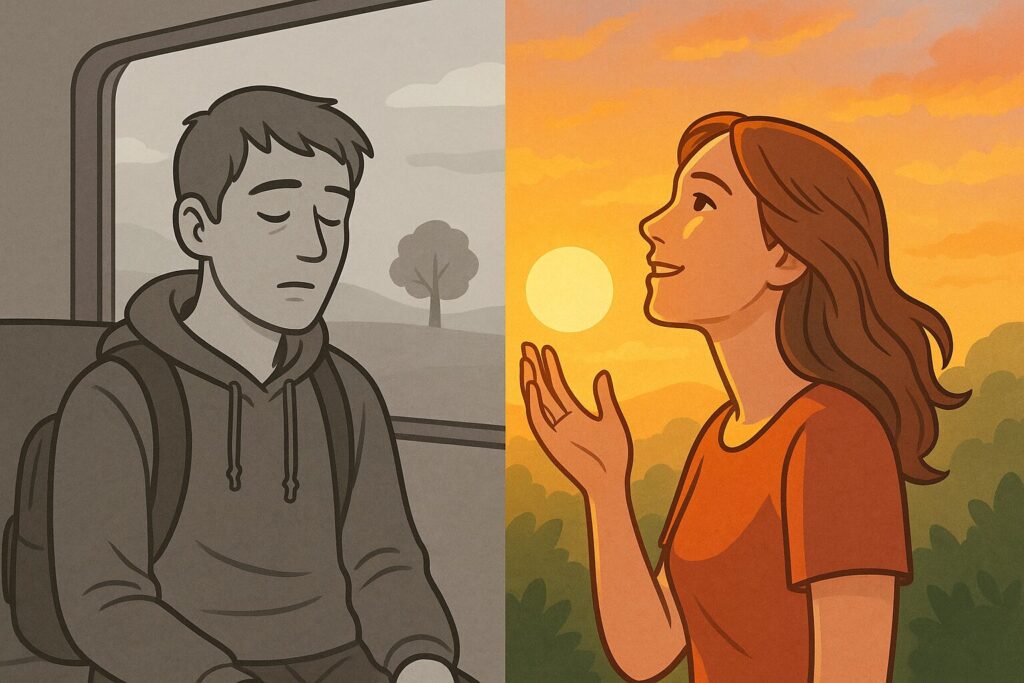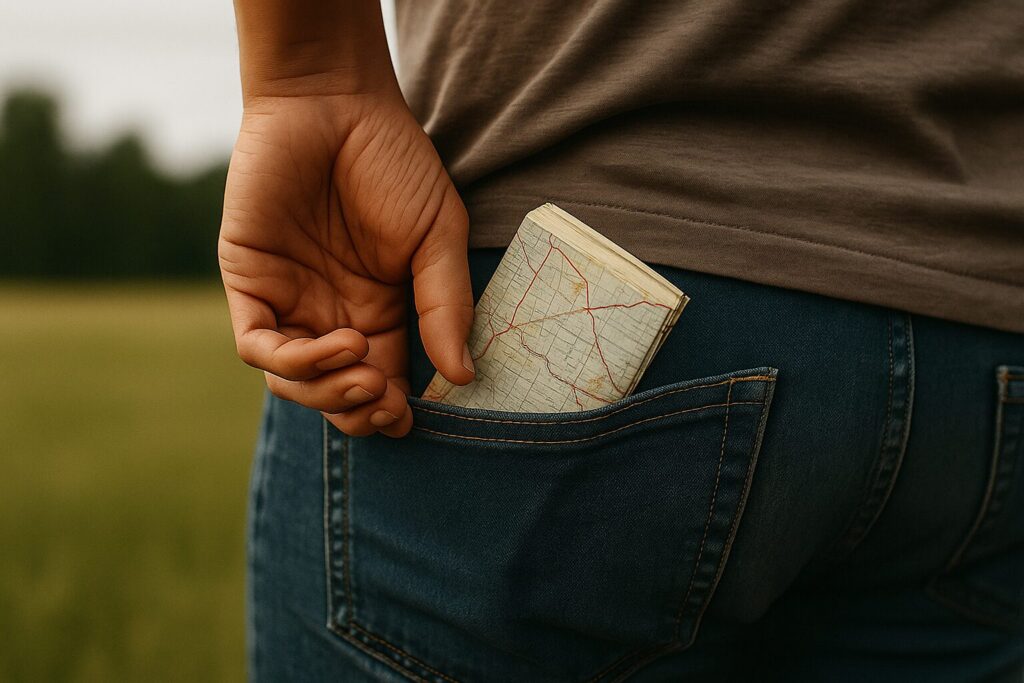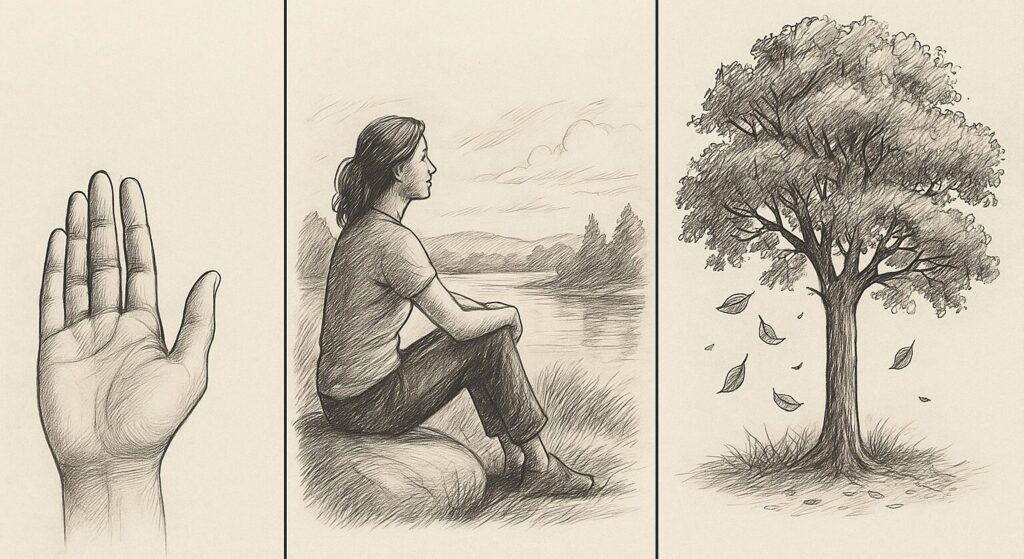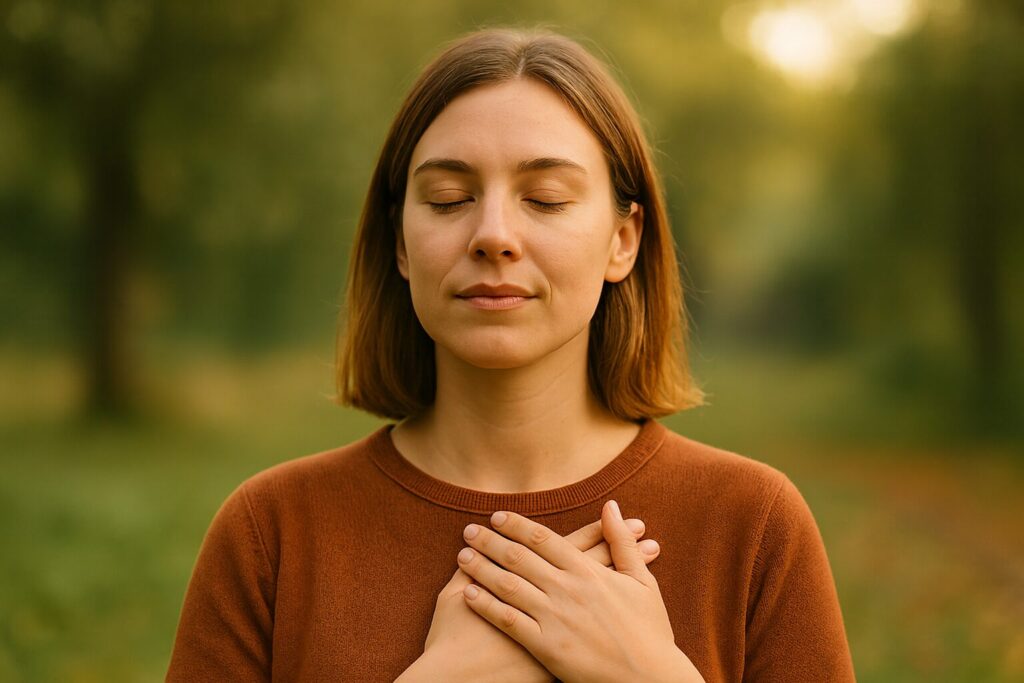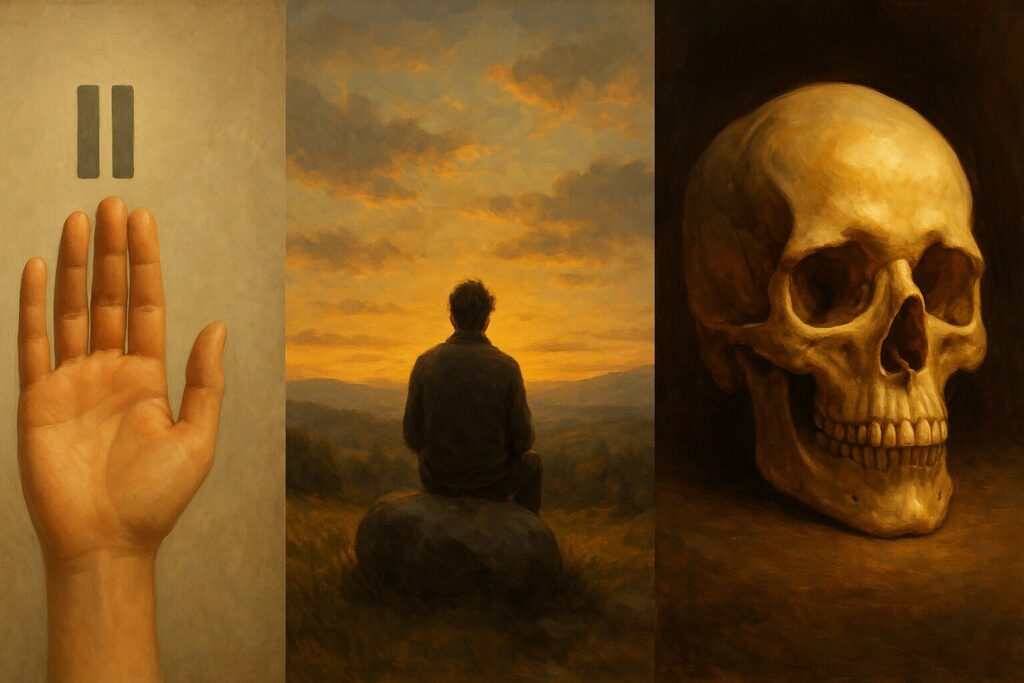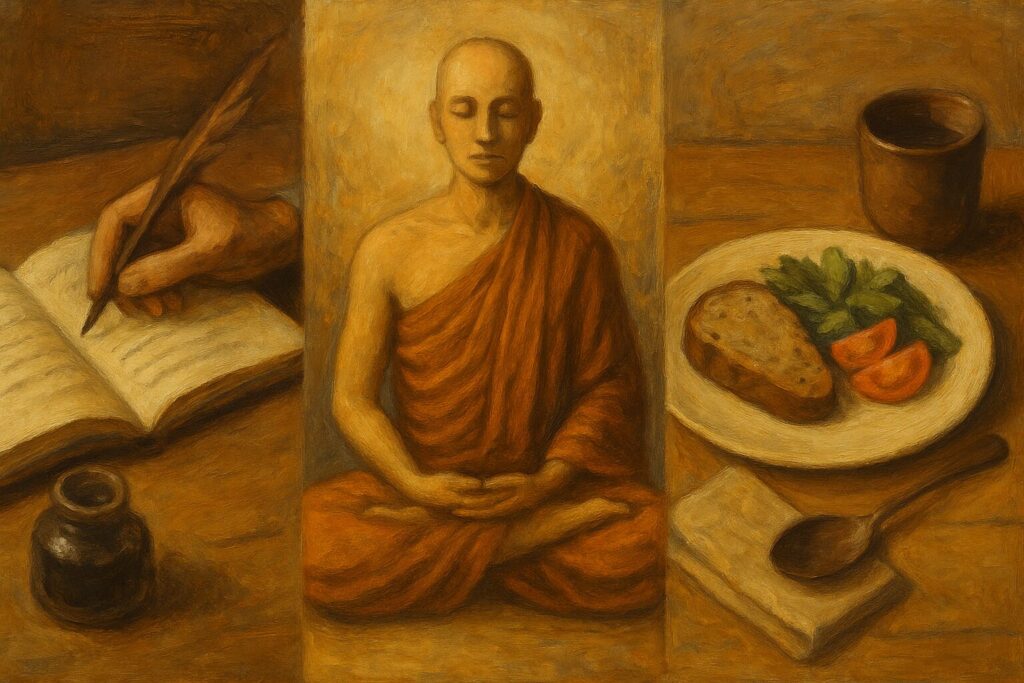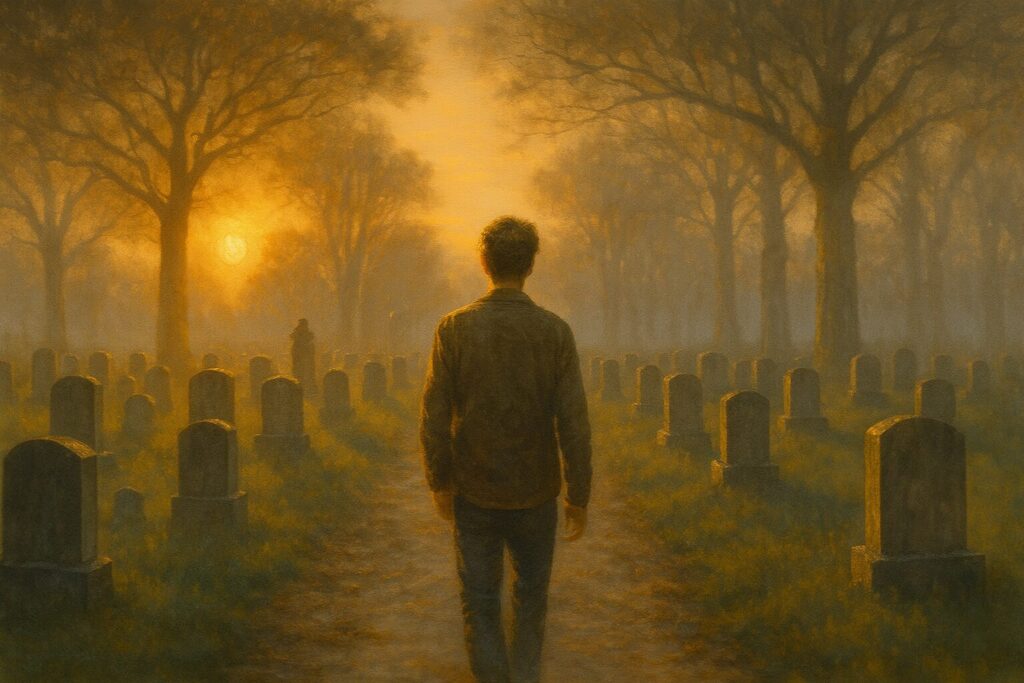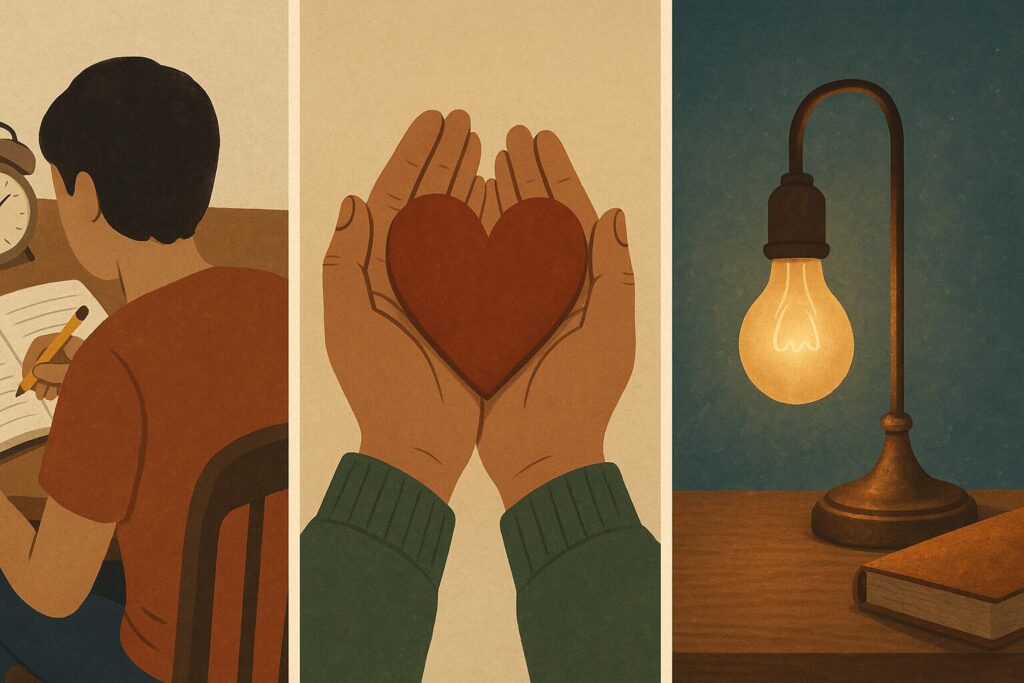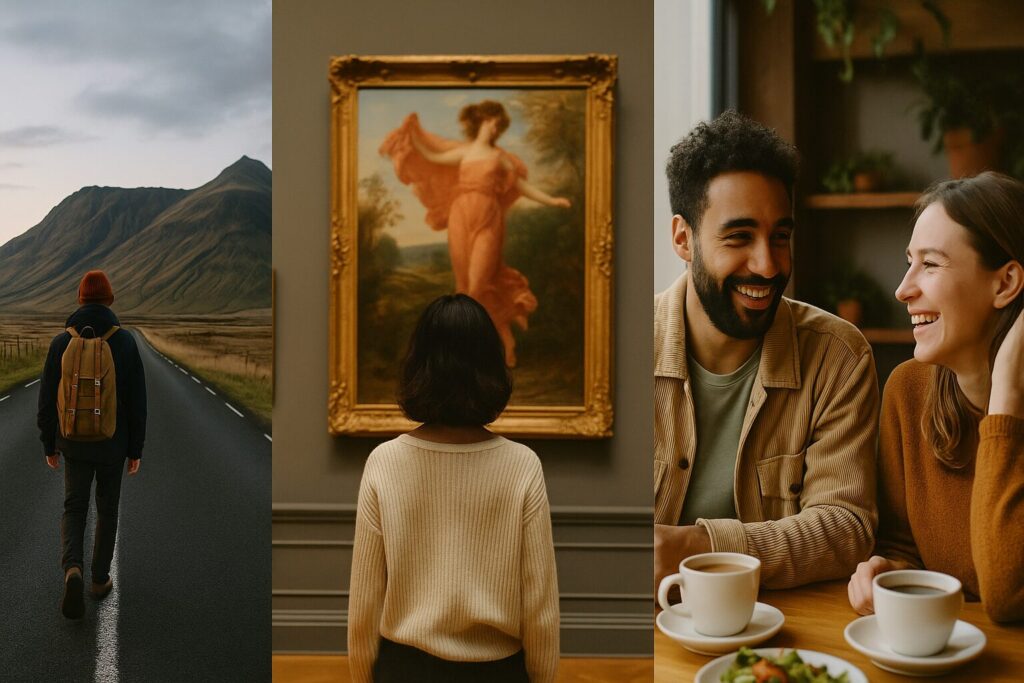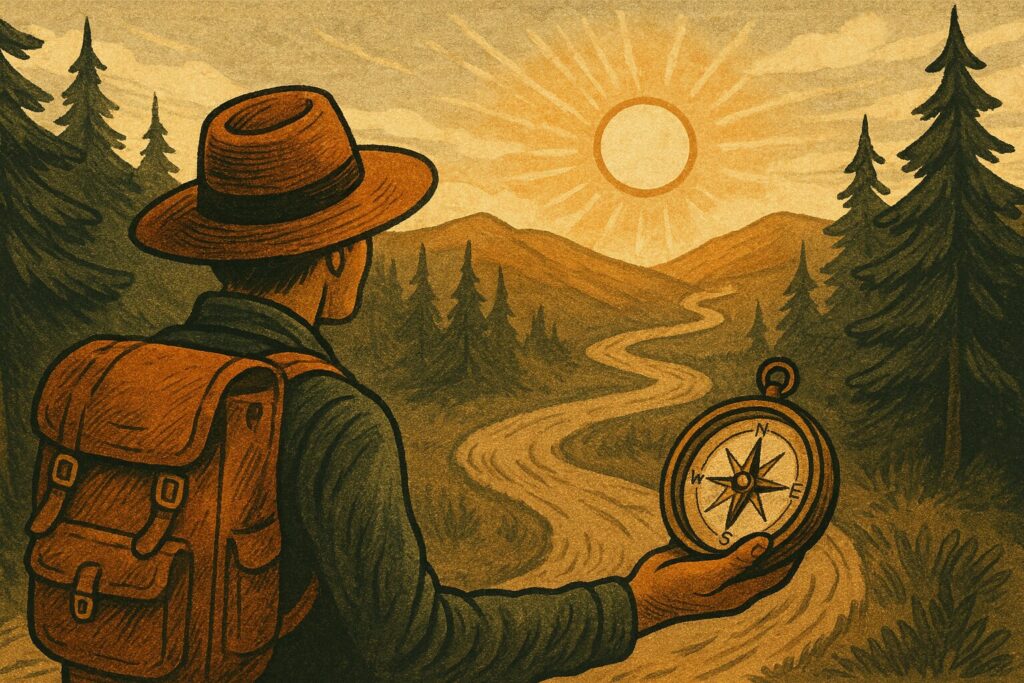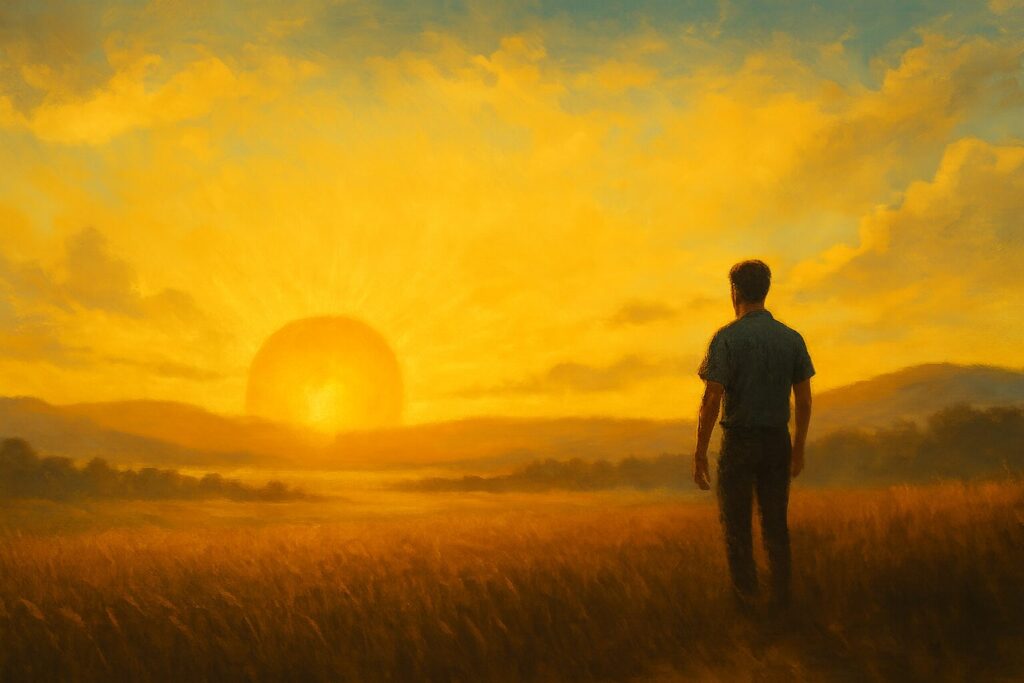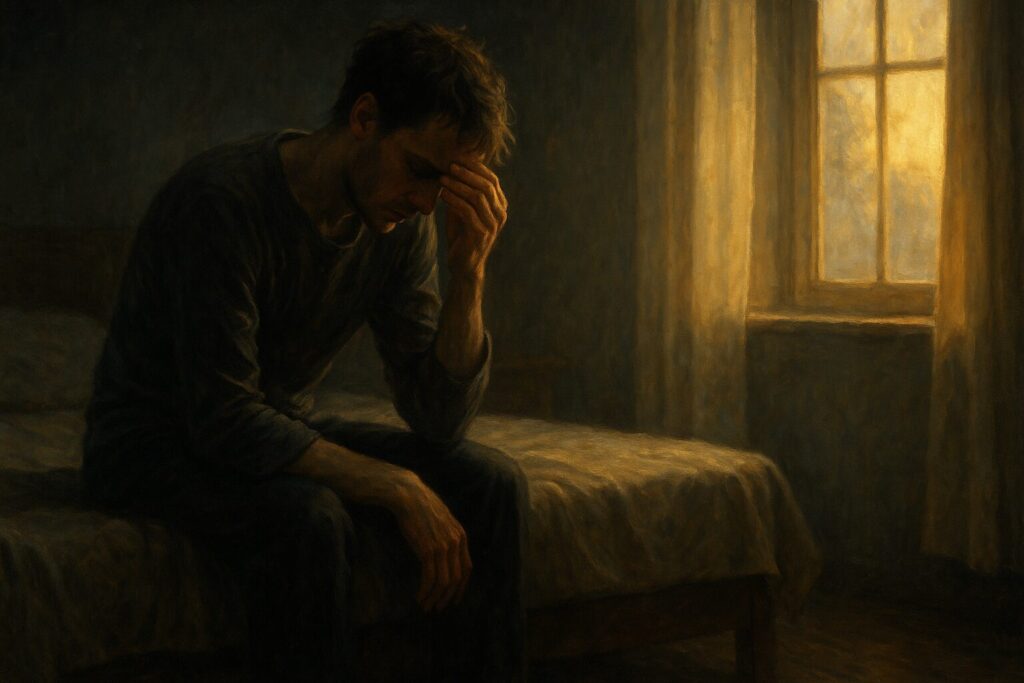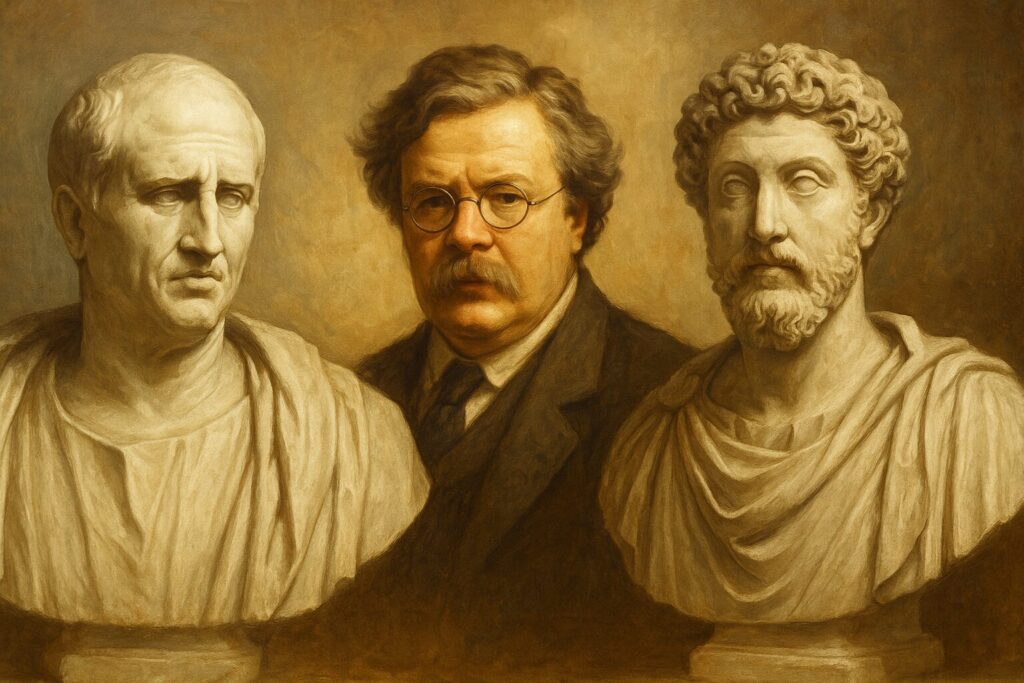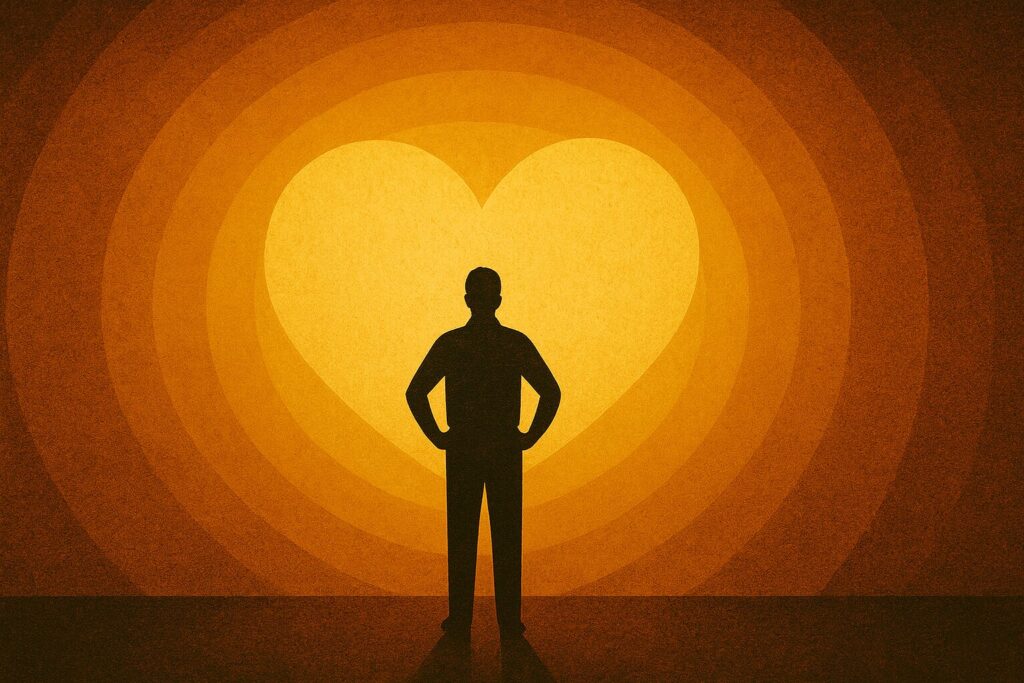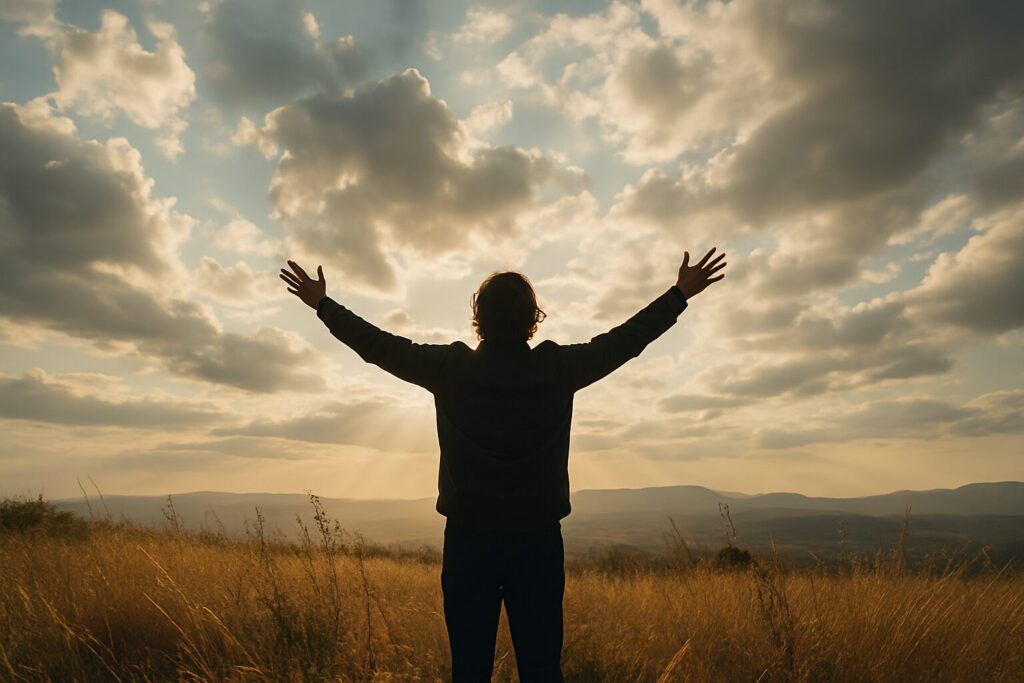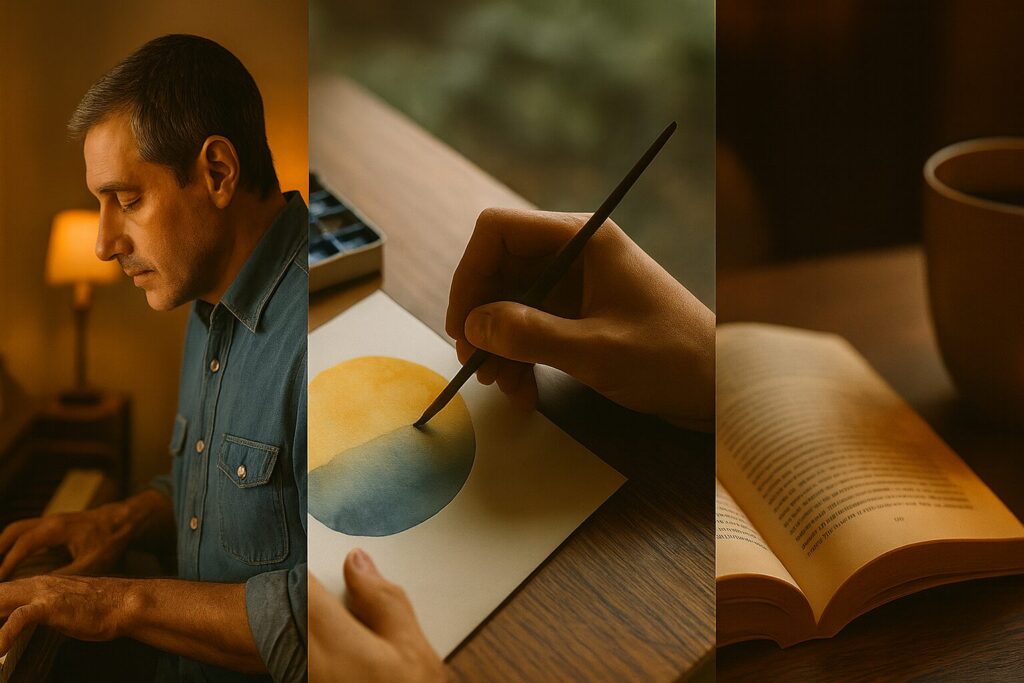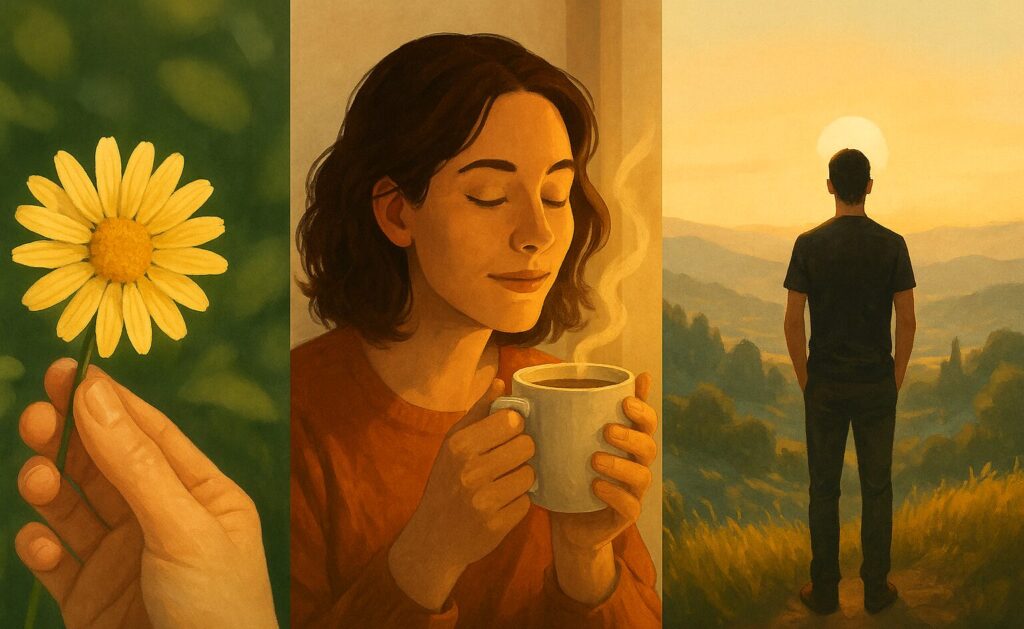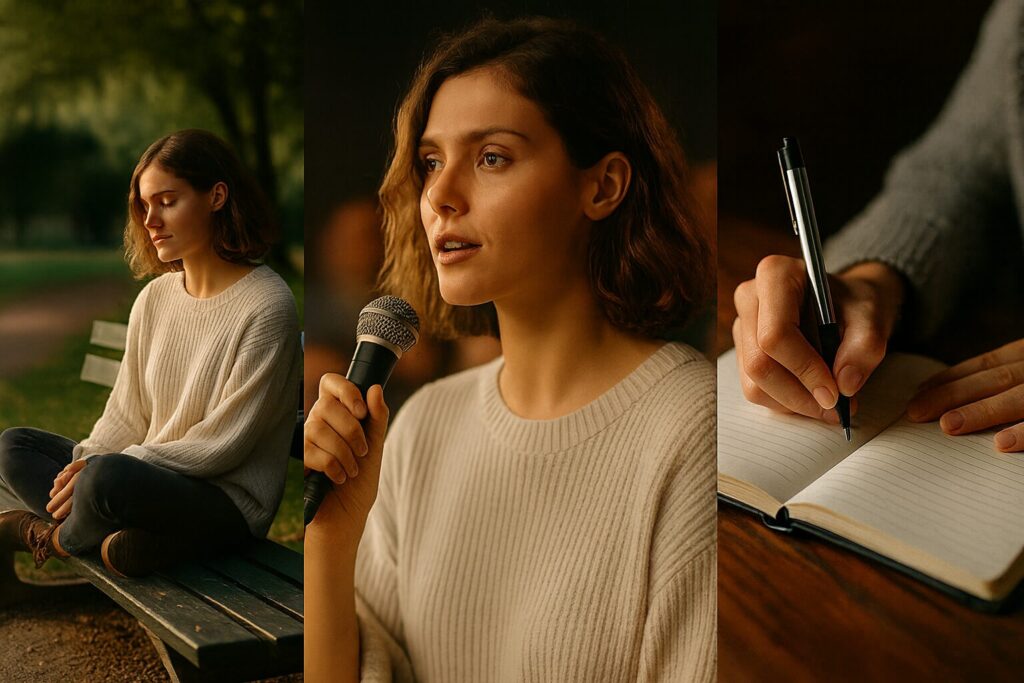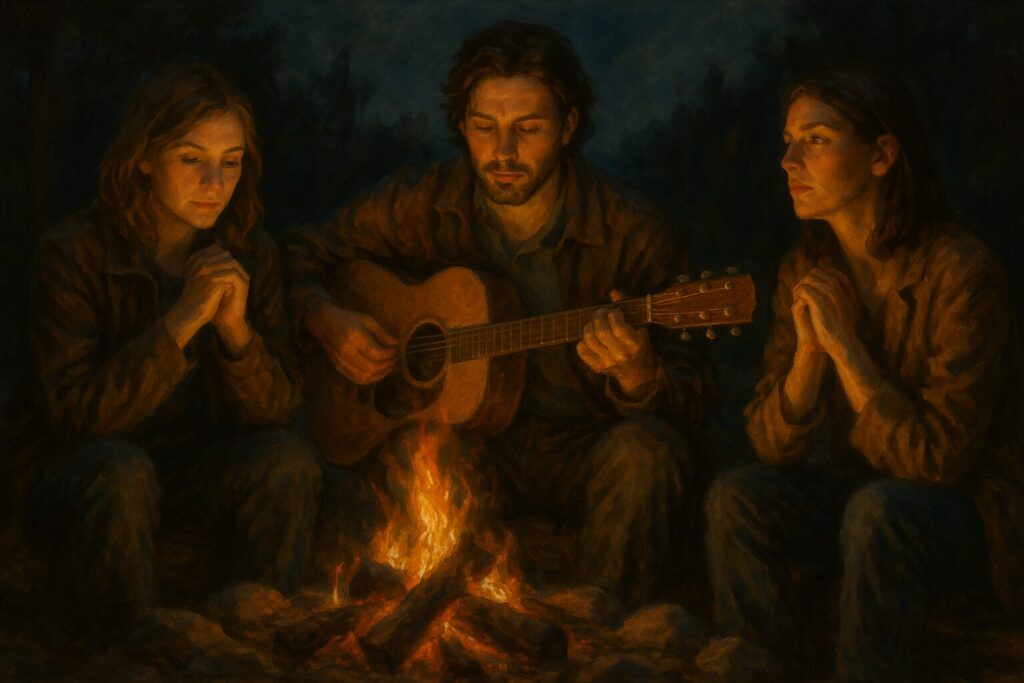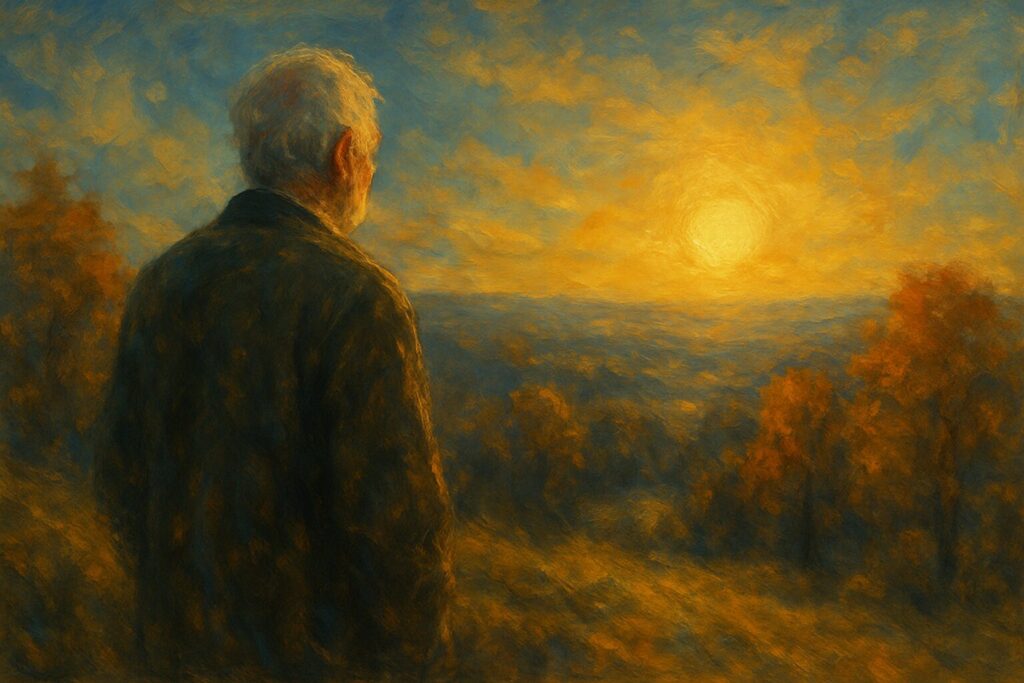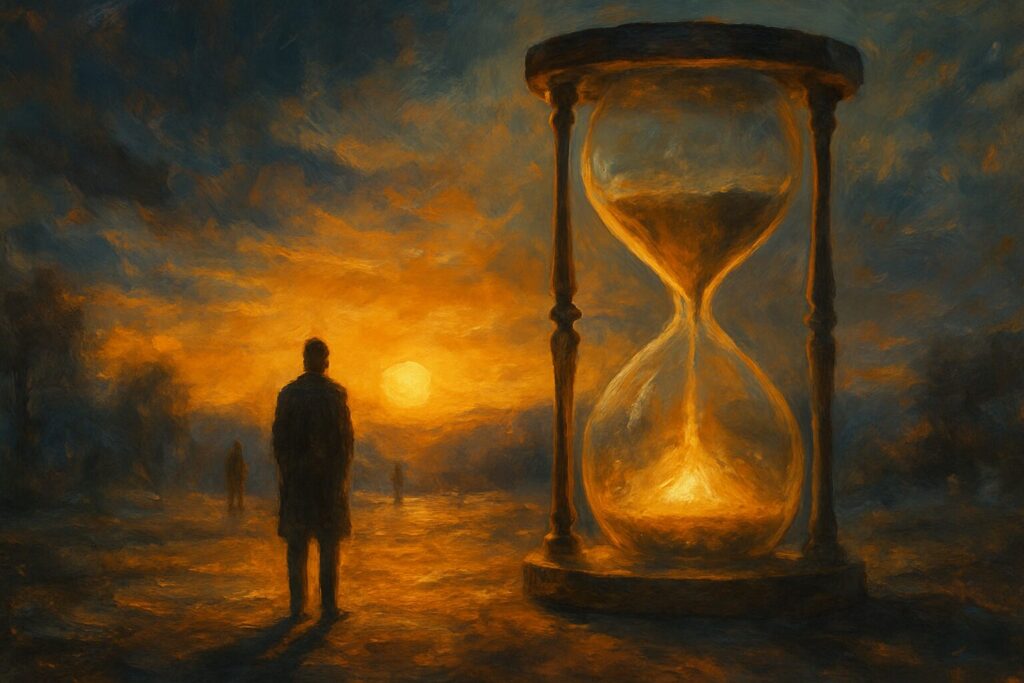Life Skills
Appreciation is not constant. No one can live permanently awestruck, permanently grateful, permanently at peace. There are storms. There are losses. There are nights when life feels unbearable, mornings when nothing glitters, afternoons when even endurance feels impossible. But the beauty of perspective is that it does not need to be constant to matter. It only needs to be returned to.
The Quiet Rebel
Not every act of independence makes the news. Most of them happen quietly, in kitchens, classrooms, offices, and breakrooms. They don’t topple governments or change laws. But they change lives — because they keep one person from surrendering their story and their dignity. This is the story of a quiet rebel. Not a revolutionary, but someone who dared to trust their own compass when conformity beckoned.
Humans as Appreciators
Other creatures live. We get to live and know we are alive. That distinction may be the single greatest feature of being human. A squirrel gathers acorns. A hawk circles for prey. Both are exquisitely adapted to survive. But neither pauses to marvel at the turning of leaves, or to wonder at the vastness of the sky. Their lives are aimed at propagation. Ours are capable of appreciation.
The Balance of Sanity and Wonder
Life demands two great skills. The first is to remain sane in the face of hardship. The second is to remain awake to wonder in the midst of ordinary days. One without the other is incomplete. Sanity without wonder becomes survival — a gray endurance stripped of joy. Wonder without sanity becomes naïveté — a fragile bliss easily shattered.
Baseline Gratitude
If you’re reading this, you’ve already won. You’ve already beaten the cosmic odds to exist as a conscious, breathing human being on this improbable planet. Out of all the stardust and lifeless rock scattered across the universe, you get a ticket to ride. You get to taste, to feel, to wonder, to choose. You’ve been given the jackpot of jackpots: human life.
Sanity and Appreciation
Life is not easy. Even the most fortunate among us face storms of stress, fatigue, grief, and uncertainty. To live well is not to dodge hardship, but to remain sane enough within it to keep seeing the gift of existence.
Anesthetic vs. Aesthetic Living
There are two ways of moving through life. One is anesthetic. The other is aesthetic. The difference may be the difference between merely surviving your days and actually living them.
Perspective: There When You Need It
There’s a kind of comfort in knowing that even when joy is absent, the path back to it exists. We don’t always need to feel gratitude in order to be steadied by it. Sometimes it is enough to know that gratitude can be returned to — that it sits in our back pocket, folded and ready, waiting for when we are able to reach for it.
Three Quotes on Sanity and Renewal
When modern life frays us, it helps to remember: humans have always struggled to stay sane, always sought ways to renew the spirit. Across centuries, thinkers have left us words that still steady us today. Here are three such voices — Seneca, Thoreau, and Rumi — each offering a fragment of guidance for keeping our core intact so that we can continue to savor existence.
The Gratitude Reset
There are days when life feels like static. Stress builds, frustration grows, the world seems gray and jagged. In those moments, we don’t need grand achievements or sudden miracles. We need a reset. Gratitude is that reset.
A Triad of Practices for Everyday Independence
It’s tempting to think independence is one big declaration — a dramatic stand against the world. But in truth, independence is practiced daily. It is strengthened like a muscle, in pauses, rituals, reminders.
Three Ancient Practices for Sanity
When life feels overwhelming, we often turn to the latest trends for relief — new apps, new hacks, new therapies. Yet across centuries and cultures, people have always faced the same question: How do we stay sane enough to love life?
Independence and Mortality
Independence is not just a lifestyle preference. It is a way of honoring the gift of existence itself. When we recognize that life is finite — that our time here is brief, unrepeatable, fragile — the question sharpens: Will I spend this one chance as myself, or as an echo of others’ expectations?
3 Types of Everyday Courage
We wait for courage to feel like fireworks. Most days it’s closer to a steady pilot light—quiet, persistent, ready to ignite what matters. Beginning badly keeps it lit. Speaking true and kind feeds it oxygen. Guarding the flame gives it fuel.
Sparks of Life
Travel opens us. Art awakens us. Companionship deepens us. Each is small enough to weave into everyday life. Together, they remind us that living fully and savoring deeply are not distant goals but daily practices.
The Joy of a Life Well-Oriented
Life is brief. Time is precious. Without orientation, we risk wasting it on false compasses and empty pursuits. But with orientation, every day can contribute to fulfillment.
You’ve Already Won
Most of us think of winning the lottery as a once-in-a-lifetime event. The odds of striking it rich with Powerball are 1 in 292 million. A long shot, to say the least. But you’ve already won the only lottery that really matters: the chance to be alive at all.
Count Each Day as Gain
The Roman poet Horace knew something we often forget: life isn’t guaranteed. Not tomorrow, not even the next hour. Every day that arrives is a gift. We do our best to steward and prolong that gift, but each day is still a privilege, and we should do our best to appreciate it as such.
Admitting Hatred of Life
There are things we’re told not to say out loud. At the top of the list: “I hate my life.” It sounds ungrateful. It sounds melodramatic. But honesty matters more than appearances. Sometimes the bravest thing you can do for yourself is to admit the truth of the moment: Right now, I hate my life.
A Meditation on Rest
Rest is not absence. It’s presence of another kind. The slowing of the drum so the melody can be heard. The white space around the brushstroke that lets the painting breathe. The silence between notes that turns noise into music.
Three Windows into Gratitude
Gratitude is as old as human reflection. Across centuries and cultures, thinkers have returned to it as one of life’s essential orientations. Not a nicety, not an afterthought — but a compass for how to live. Here are three voices — a Roman statesman, a British essayist, and a Stoic emperor — each pointing us toward the same truth: gratitude is not peripheral; it is central.
Following Your Fascinations
Selfhood doesn’t arrive as a thunderclap of destiny. It emerges step by step, as you honor the fascinations that pull you. Each spark you follow shapes the map of who you are becoming.
Three Daily Practices for Fulfillment
Life is too brief to complicate. The path to fulfillment is not hidden in philosophy textbooks or locked away in monasteries. It can begin with three simple practices: yes, savor, remember. Say yes to life. Savor what’s given. Remember it won’t last. Do these daily, and you will have seized not just the day, but the gift of existence itself.
True Norths of Fulfillment
False compasses like wealth, status, and shallow happiness are easy to chase but leave us empty. True norths are quieter, but they lead us home. So name your purpose. Follow your fascinations. Savor beauty whenever it interrupts you. Because these are the guiding stars of fulfillment — and life is too precious to navigate without them.
Gratitude as Mental Maintenance
Life isn’t always smooth. Stress builds, anxiety spikes, and despair can creep in. But gratitude for simply being alive acts like maintenance for the soul. It’s coolant in the overheated engine of existence. It steadies us when the road feels rough.
Tools for Shaking Off Numbness
We go through our days dulled by routine, lulled by sameness, anesthetized by the narcotic of familiarity. The gift of life—this once-in-eternity chance to exist—becomes something we sleepwalk through. The good news? Numbness is not permanent. It can be interrupted. It can be shaken off. You can step back into your life with fresh eyes and a sense of wonder.
Soul Therapy
Life wears us thin. Worries fray us, routines numb us, losses bruise us. Left alone with only pressure and demand, we shatter. But we are not left alone. Human beings, from the dawn of history, have discovered a thousand ways to restore ourselves — ways of tending our soul.
The Practices of Appreciation
Gratitude is more than a passing feeling. It’s a way of seeing, and like any skill, it can be trained. Without practice, appreciation slips away; life fades into background noise. With practice, we stay awake to the wonder of being alive.
Three Takes on Independence
Life is short, and conformity is tempting. But mortality clarifies: there is no rehearsal. You only get this one chance. To waste it on mimicry is to waste it altogether. Trust thyself. Live deliberately. Will yourself — and others — to be free. Altogether, these lead you, and those around you, to a life more fully lived.
Three Practices for Finding Ourselves
Finding ourselves isn’t a one-time revelation. It’s a rhythm: solitude, risk, story. Again and again. Don’t wait for lightning. Begin with what’s near: a walk, a brave step, a few honest sentences.
Risks Worth Taking
The risks worth taking are not reckless stunts or shallow thrills. They are the risks that enlarge us: to love, to create, to change. Yes, they expose us to pain. But they also open us to meaning. And when we look back, it won’t be the guarded moments we remember. It will be the leaps.
Pride and Mojo
There is a kind of joy that doesn’t come from sunsets, or music, or even love. It comes from something quieter: the simple satisfaction of feeling at home in your own skin. It’s the moment you stand a little taller because you did what you said you would do. It’s the glow of competence after solving a problem. It’s the inner warmth of knowing you’re living in line with your values.
At Least We’ve Had Life
There’s a simple truth that we overlook far too easily: no matter what else happens—failure, disappointment, even tragedy—we’ve already won by having lived at all.
Living in Your Final Hour
Imagine this: you are in the final hour of your life. Not in some distant, abstract sense, but right now. You feel the clock running down. You know there will be no extensions, no extra innings. What rises in your heart? What suddenly seems irrelevant? What suddenly shines with unbearable beauty?

